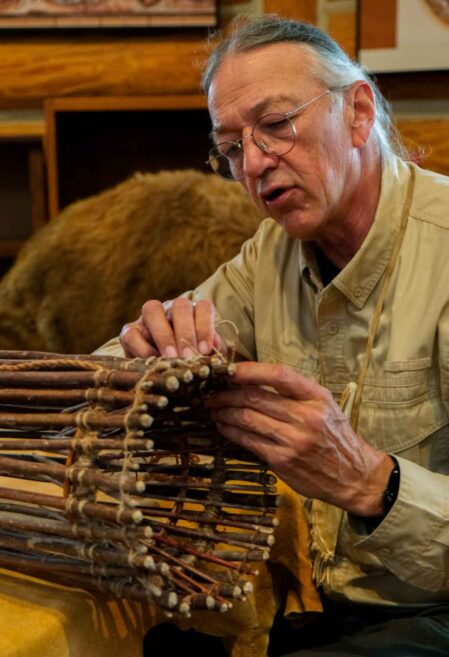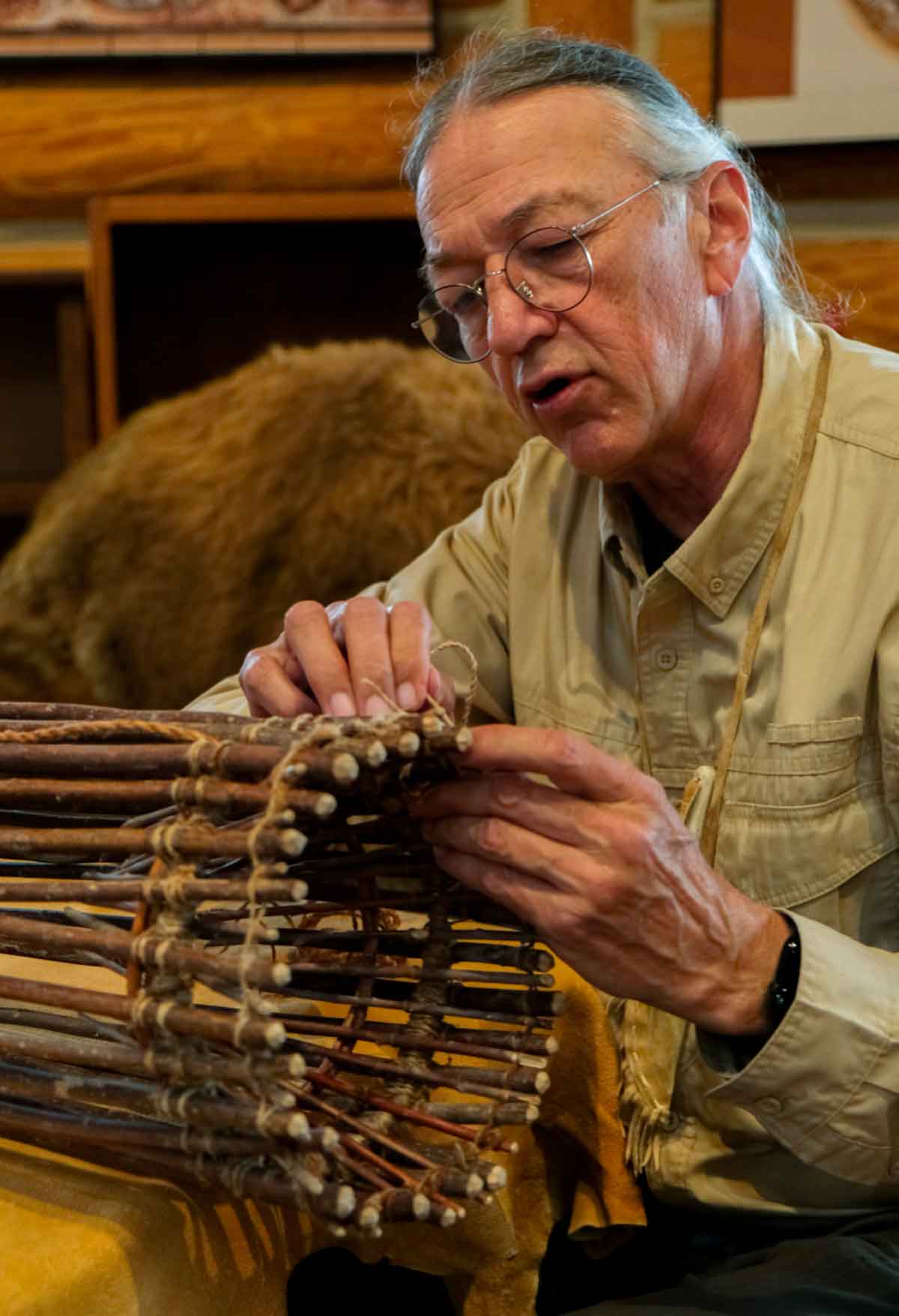As an enrolled member of the Confederated Salish and Kootenai Tribes of the Flathead Reservation, Tim Ryan’s work embodies the material culture and traditional, place-based ecological knowledge preserved by his ancestors for thousands of years. His research on Salish seasonal rounds, lifeways, and economy has driven him to revive, utilize, and promote the traditional tools and material goods of his ancestors, leading him to become an instructor of traditional skills. These tools include digging sticks, grinding stones, stone hammers and axes, bison bladder canteens, beaded materials, digging sticks and stick games, fishing tools, parfleche and rawhide works, bows and arrows, and bark baskets and containers. By understanding both the historical significance and the science into such material culture and Indigenous technologies, those who view and utilize Tim’s work quickly understand that Native practices, developed over millennia, were far from primitive, remain applicable to everyday life, and represent his people’s deep connection to and knowledge of the land.
Tim has shared this knowledge through various means, including demonstrations, hands-on traditional skill teachings, and contributions to publications. His work has also been featured in interpretive centers and museums, as well as through collaborations with federal and state agencies, civic organizations, schools via OPI’s Indian Education for All, summer youth camps, and in his role at Salish Kootenai College. He has work institutions such as school districts, Tribal Social Services, Butte Public Archives, Circle of Trust Suicide Prevention, Glacier National Park, the Montana State Office of Tourism, and Salish Kootenai College. Additionally, Tim has contributed material culture items to entities like Kootenai National Forest, Montana Historical Society, and the National Bison Range. Through camps and courses, such as the five-day “Salish Pend d’Orielle Culture Camp” and “Bridging the Divide Culture Camp,” Tim teaches students about traditional ecological knowledge, cultural practices, history, and tool use.
In his current role as Department Head for Culture and Language in the Native American Studies Division, Tim facilitates experiential learning in Native American culture by incorporating STEM, Indigenous sciences, ethnobotany, natural history, and traditional lifeways—all of which are integrated with the seasonal rounds of the Salish and Pend d’Oreille Tribes of Montana. When teaching his courses, he aligns the curriculum with these seasonal cycles. Additionally, Tim serves as Project Supervisor for the summer youth program, Mission Mountain Youth Crew, where he teaches students from the Flathead Reservation forest restoration techniques using traditional methods and hand tools. His work provides career-track exposure in the natural resource fields, ensuring that the Native perspective influences these industries for generations to come. At the Butte High School History Club, he led activities such as bison butchering with traditional stone tools, stone tool making, hide processing, and willow fish trap construction. Finally, in his role with Ancestral Skills & Technologies Northwest, Tim consults on and provides educational outreach regarding the crafting of traditional material culture of Northwest tribes.
Tim has dedicated his life to preserving and sharing traditional knowledge, documenting it through countless publications and videos. Through his teaching of tool craftsmanship and use, he ensures that future generations remain connected to their cultural heritage.
This year, Tim will join other artists and Ripple on the Folklife stage for a discussion highlighting the important intersections between environmental conservation and cultural heritage preservation.


